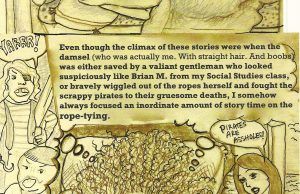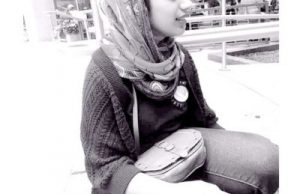Kanye West Is Not a Feminist But…..
By Ronald B. Neal
I’ve been thinking about Kanye West and gender politics for quite some time. It began back in ’05 when his pop ular song “Gold Digger” was in heavy rotation on urban and Top 40 radio stations. In the song’s head turning refrain, which is clearly one man’s awareness of progressive gender politics, West plays with a common female stereotype without giving it real credence: “Now I ain’t saying she a gold digger, but she ain’t messin’ wit’ no broke niggaz.” Depending on who is listening and what kind of gender consciousness is at play, Kanye West can be easily written off as just another Hip Hop woman hater. To be sure, Kanye West is no feminist. At no point in his short career has he paid homage to any movement among women, black, white, etc. And there is not a single song or skit on any of his albums where anti-progressive male attitudes towards women are challenged directly. However, it would be unfair to say that he is anti-women or that women are treated like indentured servants or worse, three fifths of a person, when they appear in his lyrics and videos. This includes songs and videos from his most recent album (see “Power” and “Runaway” from My Beautiful Dark Twisted Fantasy) where women are omnipresent. In no way can they be compared to songs and videos such as Jay-Z’s “Big Pimpin’” or Nelly’s “Tip Drill.”Rappers such as Snoop Dogg, Ludacris, Too Short, and the late Pimp C, have Mr. West outmatched where “guerilla pimping”is concerned.
Although a real distinction can be made between Kanye West and the legacy of someone like pornographic Hip Hop pioneer, Luther “Uncle Luke” Campbell (Don’t Stop, Get it, Get it), West is clearly not a feminist. However, unlike many of his Hip Hop comrades, Kanye West has a complicated relationship with women which cannot be reduced to misogyny. Like most of his rap peers, it is not hard to find less than progressive gender sentiments in his art. Similar to rappers like Jay-Z and Lil Wayne, echoes of male entitlement and status recognition, on the part of women, are evident in his work. However, these ego-driven aspects of his art are overwhelmed by entire songs and thought grabbing verses that are not born out of thoughtless hostility toward women, where masculine vulnerability and emotional transparency take center stage. Simply stated, Kanye West has no problem with breaking the dominant code of masculinity in Hip Hop by expressing his fears, insecurities, anxieties, failures, and even frustrations when it comes down to his relations with women, particularly at the level of love and romance. As far as Hip Hop as a genre is concerned, what West has articulated in songs such as All Falls Down (College Dropout), Flashing Lights (Graduation), Runaway (My Beautiful Dark Twisted Fantasy) and an entire album, 808’s and Heartbreak, is taboo. He is among a small number of artists, which include Q-Tip from a Tribe Called Quest, Andre 3000 from Outkast, Common, and most recently, Drake, who go against the grain of masculine invincibility and emotional underdevelopment which plague too much rap music. Although hardcore rappers such as 50 Cent and Plies have a penchant for making the occasional “song for the ladies,” radio hits, it is less than likely that either would devote at least half an album to their emotional adventures, highs and lows, with women. In relation to thugged-out love, Kanye West is quite the exception.
As far as gender complexity is concerned, what one finds in West’s art is in very profound ways similar to what one finds in the work of self-described Hip Hop feminist, Joan Morgan. It was Morgan, who more than a decade ago, articulated a version of feminism which was specific to the Hip Hop Generation. Her feminist text, When Chickenheads Come Home to Roost: A Hip Hop Feminist Breaks It Down, espoused a very complicated and less than perfect practice of gender progressivism. In what was an exceedingly transparent work of prose, Morgan made it emphatically clear that relating to the other side of the gender world, while attempting to live out the most progressive values, is challenging work. In unambiguous terms, she made it strikingly clear that simplistic binaries such as “man against woman” and “woman against man,” only lead to separatism and loneliness. In the end, gender wars do not result in progress, only anger, frustration, and tears.
When I listen to Kanye West, I do not hear a man who is at war with women. When I listen to his music, what I hear is a man with a complex disposition with respect to women, a disposition which makes it difficult, at least for me, to label him a misogynist. I am reluctant to call him a misogynist because I do not think that he hates or dislikes women. Moreover, I do not think that he thinks that women are less than men. If anything, Kanye West is a less than perfect man—a megalomaniac—- who struggles with how he relates to women. He struggles with the question of what women want. He struggles, imperfectly, with how to respond to this question. And in very profound ways, his struggle is the struggle of men, feminist identified or not, who are concerned with the ethical treatment of women. And such a concern comes with a high degree of complexity that is hardly visible and articulated within and beyond popular culture. As an artist in a maligned genre of popular art, he gives such gender complexity much needed expression. As a popular artist in a genre that is stigmatized by guns, drugs, and prostitution, he gives Hip Hop a level of depth— at the level of gender— that it so desperately needs. Again, Kanye West is not a feminist but given the gender struggle in his work he can hardly be considered a misogynist.
_______________________________________________________________
 Ronald B. Neal holds a Ph.D. in Religion, Ethics, and Culture from Vanderbilt University. He is a Visiting Assistant Professor in the Department of Religion at Wake Forest University in Winston-Salem, North Carolina. His research and writing interests include: religion, gender, and culture, religion, ethics, and politics, modern and postmodern philosophy, Third World Studies, and popular culture. He is the author of the forthcoming book, Democracy in 21stCentury America: Notes on Race, Class, Religion, and Region (Mercer University Press). He is currently at work on an untitled book on religion, masculinity, and hip hop.
Ronald B. Neal holds a Ph.D. in Religion, Ethics, and Culture from Vanderbilt University. He is a Visiting Assistant Professor in the Department of Religion at Wake Forest University in Winston-Salem, North Carolina. His research and writing interests include: religion, gender, and culture, religion, ethics, and politics, modern and postmodern philosophy, Third World Studies, and popular culture. He is the author of the forthcoming book, Democracy in 21stCentury America: Notes on Race, Class, Religion, and Region (Mercer University Press). He is currently at work on an untitled book on religion, masculinity, and hip hop.





Pingback: A Response to Ron Neal’s essay, “Kanye West Is Not a Feminist But…” | The Feminist Wire
Pingback: RE: Kanye West is Not a Feminist, but… « The Crunk Feminist Collective
Pingback: Kanye West Is Not a Feminist But I Am! | The Feminist Wire